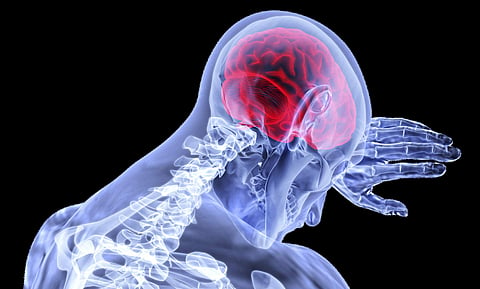

BHUBANESWAR: In what can be termed as one of the biggest medical breakthroughs in recent times, the Gen-Next CAR T-cell therapy in patients with glioblastoma has shown promising results, bringing enthusiasm among onco surgeons. Recurrent glioblastoma, the most aggressive form of cancerous brain tumour, till now had no effective treatment.
Glioblastoma is among the common primary brain tumours in both Indian and western population. Its prevalence is higher in men, and patients suffering less vigorous glioblastoma have longer endurance with consequent morbidity.
Surgeons at Massachusetts General Hospital, US, have witnessed tremendous outcomes of the therapy during the first phase trial, known as INCIPIENT. The trial was designed to evaluate the safety of CARv3-TEAM-E T-cells in three patients, including a woman, with recurrent glioblastoma. Days after the treatment, all three patients experienced surprising reductions in their tumours, with one achieving near-complete tumour regression.
According to the first-in-human study published in The New England Journal of Medicine, all three patients, ages 74 years, 72 years and 57 years, who were treated with CARv3-TEAM-E T-cells between March and July 2023 experienced dramatic and rapid radiographic tumour regression within days after receiving the T-cells via a single intraventricular infusion.
The patients tolerated the infusions well and all had fever soon after infusion, as was expected from an active CAR T therapy administered into the fluid around the brain. While the 74-year-old man had his tumour regress rapidly after a single infusion of the new CAR-TEAM cells, an MRI conducted on the 57-year-old woman five days after the single infusion showed near-complete tumour regression.
Similarly, the 72-year-old man experienced a decrease in tumour cross-sectional area of 18.5% on day-2 after receiving a single infusion of 10x106 CAR-positive CARv3-TEAM-E T-cells. The tumour further decreased by 60.7% from baseline on day-69. The response was sustained and continued to improve till the last assessment that took place five months after the infusion, the study stated.
Dr Dillip Kumar Parida, head of radiation oncology at AIIMS, Bhubaneswar, said the successful trial is a breakthrough in medical science and it will be a game changer in cancer treatment if the therapy sustains in subsequent trials leading to approvals from drug regulatory bodies across the globe for commercial use.
“Recent advances in activation of T-cell receptor structure have paved the path for the development of numerous T-cell-based cancer therapies. Preliminary findings of the study showed exciting results. But this is just the beginning. The researchers at the Massachusetts General Hospital are pursuing the therapy that has the potential to do what was unexpected. So far, CAR T-cell therapy has been approved to treat blood cancers,” he said.
What is glioblastoma?
Glioblastoma is a fast-growing cancer in the brain that is universally fatal despite available treatments. Symptoms include persistent headaches, blurred vision, vomiting or loss of appetite, changes and mood and personality, seizures and speech difficulty among others.
This intracranial brain tumour can be diagnosed and monitored through various brain imaging techniques, including computed tomography and magnetic resonance imaging. It carries a particularly poor prognosis, with median survival of 15 months and a five-year survival rate of less than 5%.
Recurrent glioblastoma refers to glioblastoma that returns after initial treatment, which typically includes surgical removal of the tumour and chemotherapy. Glioblastoma is difficult to treat because it is a heterogeneous tumour as not all of the tumour cells are alike and they do not respond uniformly to any one treatment strategy.
The standard-of-care therapy to treat brain tumour has been surgical resection, radiotherapy and temozolomide. Given the limited effectiveness of chemotherapy and radiation, alternative treatment strategies were needed to meet the specific challenges, including spread of tumour cells, impaired immunological response and drug delivery limitations posed by the blood-brain barrier.